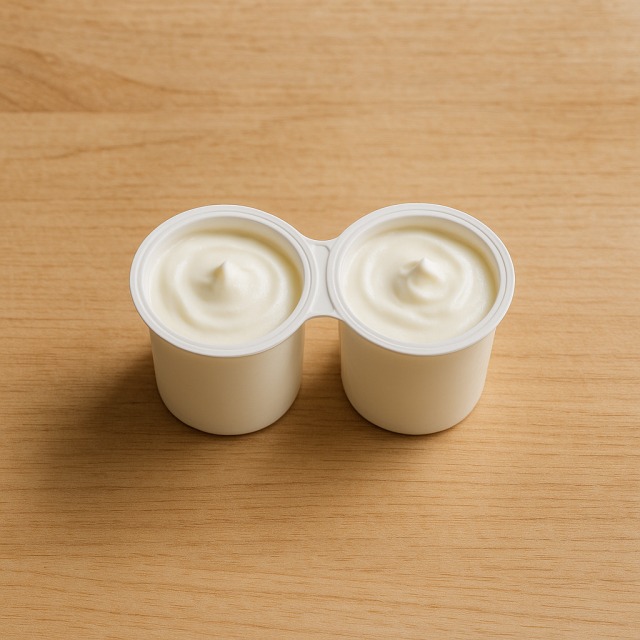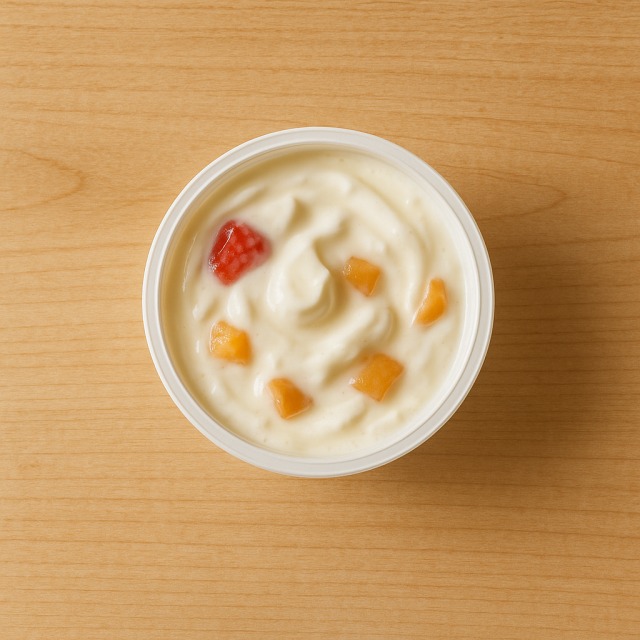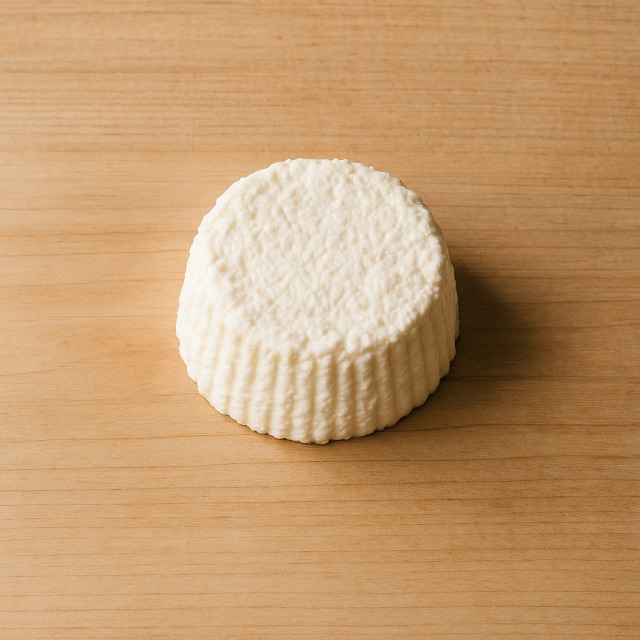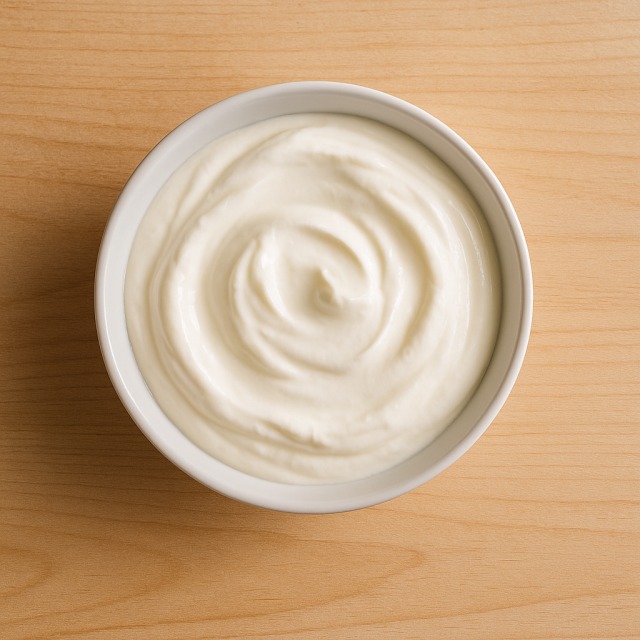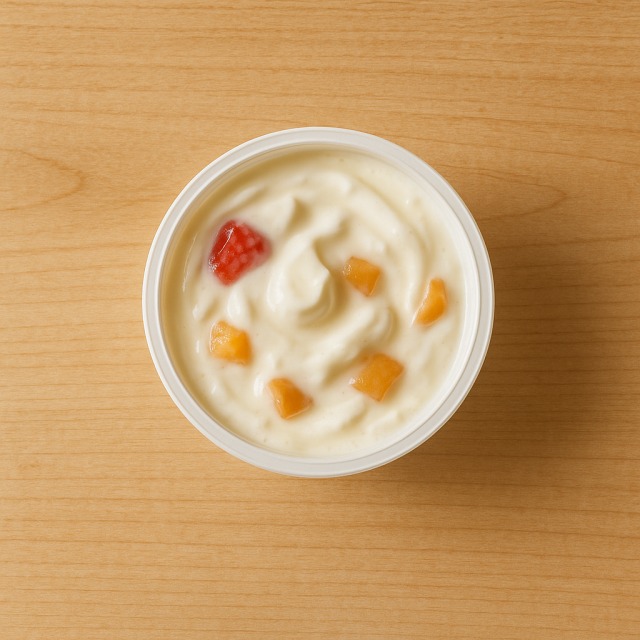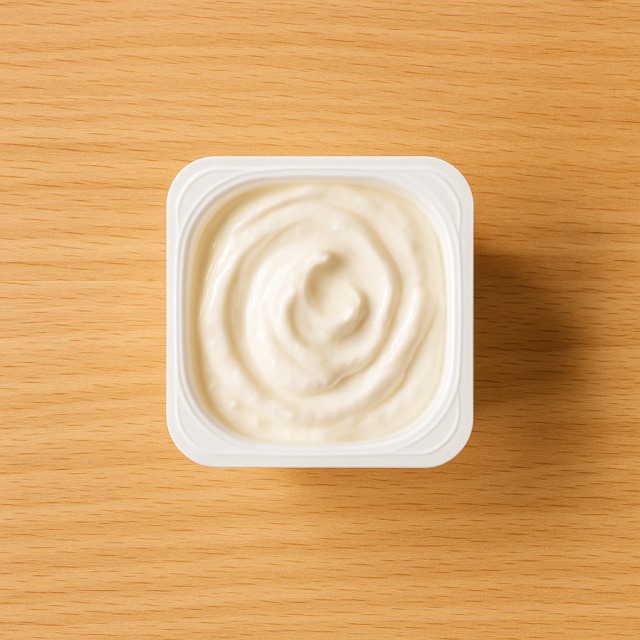Calorie Chart / Desserts / Fromage blanc 30%
How Many Calories Are in Fromage blanc 30%?
Calculation of the nutritional value & Recommended Dietary Intake of fromage blanc 30%
For g and a calorie requirement of kcal
| Calories 125 kcal | Proteins 10 g | Lipids 7.5 g | Carbohydrates 4.4 g |
| 6% | 13% | 11% | 2% |
Health benefits of fromage blanc 30%
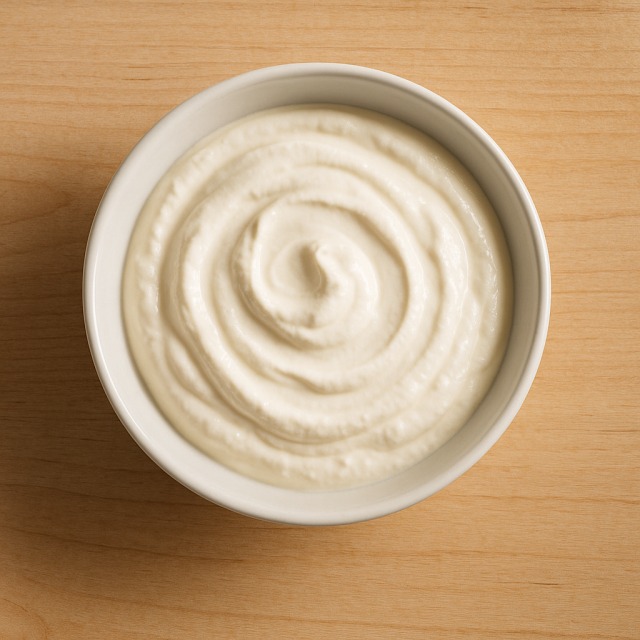
Fromage blanc 30% - 100g
Calories 100 kcal
Proteins 8 g
Lipids 6 g
Carbohydrates 3.5 g
With roughly 100 kcal per 100 g, fromage blanc 30 % is classified as a moderate-calorie fresh cheese. Its calorie density is much lower than that of aged cheeses such as Emmental or hard fats like butter, yet appreciably higher than that of a plain yogurt. This balanced position on the calorie scale makes it attractive both to people watching their calories and to athletes needing controlled energy intake.
The curd is naturally rich in complete proteins (8 g/100 g), supplying all essential amino acids needed for muscle maintenance and satiety with only moderate calories. The 30 % fat content contributes conjugated linoleic acid (CLA) and dairy omega-3 in small amounts, plus a creamy texture that can help curb cravings without an excessive calorie load.
Mineral-wise, fromage blanc 30 % delivers around 100–120 mg of calcium per 100 g, supporting bone health and nerve signaling. It also provides phosphorus, potassium, and a noteworthy dose of vitamin B12 and riboflavin (B2), both involved in energy metabolism—again, without pushing daily calories through the roof. As a fermented product, it may contain live lactic bacteria that can support gut microbiota (a benefit still considered "supposed" by current research).
A historical note: "fromage blanc" has been produced in the French regions of Normandy and Alsace since medieval times, when fresh curds were drained in linen bags. The 30 % designation refers to fat in dry matter, not total weight, which often confuses calorie calculations. Remembering this detail helps you interpret nutrition labels and manage calories more precisely.
Tips for incorporating fromage blanc 30% into a balanced diet
Because it supplies protein with only moderate calories, fromage blanc 30 % fits easily into balanced breakfasts: top 150 g with a spoonful of oat flakes, slices of banana, and a drizzle of honey. The combination keeps morning calories in check while adding fiber and slow-release carbs.
As a savory snack, whip fromage blanc with chopped cucumber, garlic, and herbs to create a lighter take on tzatziki. Enjoy it alongside grilled chicken breast for a high-protein plate that limits excess calories compared with creamy mayonnaise-based dips.
For dessert without a calorie spike, fold fromage blanc into a coulis of fresh strawberry or apricot. The natural acidity enhances fruit sweetness, so you can skip added sugar and still keep total calories low.
Culinary tip for athletes: substitute fromage blanc 30 % for mascarpone in a quick tiramisu-style snack. You slash calories by nearly half while preserving mouthfeel. Likewise, replacing cream in sauces such as carbonara sauce with fromage blanc reduces calories and saturated fat without sacrificing creaminess.
Frequently Asked Questions
- How many calories are in fromage blanc 30%?
- There are 100 kcal per 100 g.
- Is fromage blanc 30% suitable for weight loss if I count my calories?
- Yes. With 100 kcal and 8 g of protein per 100 g, it offers satiety for a moderate calorie cost. Portion control is still necessary in a calorie-restricted diet.
- What is the difference in calories between 0 %, 20 %, and 30 % fromage blanc?
- Fat content rises from 0 % to 30 %, so calories roughly triple: about 45 kcal/100 g for 0 %, 80 kcal for 20 %, and 100 kcal for 30 %. Choose the version that matches your calorie target and taste preferences.
- Can I eat fromage blanc 30% before bed without overloading on calories?
- A 100 g serving provides only 100 kcal yet 8 g of slow-digesting casein proteins, making it a good late-night option that will not dramatically raise daily calories.
- How does fromage blanc 30% compare to yogurt in terms of calories?
- Plain yogurt averages 60–70 kcal per 100 g, so fromage blanc 30 % is richer by about 30–40 kcal. In exchange, you gain a creamier texture and slightly higher protein. Adjust serving size to keep total calories aligned with your goals.
Similar foods
Information provided by Calorie Menu may contain inaccuracies or errors. It cannot, under any circumstances, substitute medical advice or medication.
